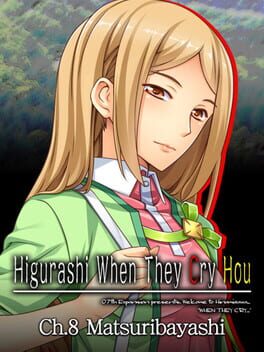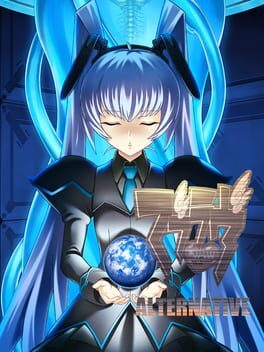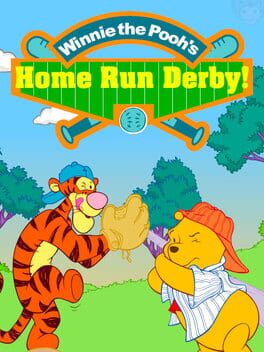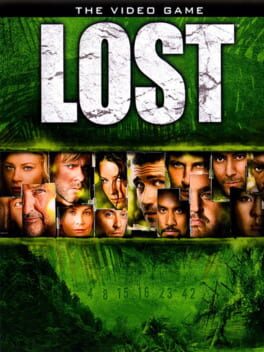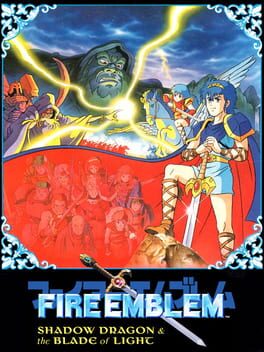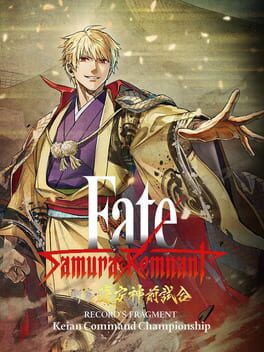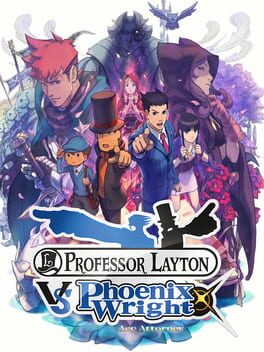Raxivace
89 reviews liked by Raxivace
This review contains spoilers
i'm not entirely sure how i feel about matsuribayashi. it's ok. i think it's telling that it took me the second longest out of any higurashi chapter to actually finish (about a month and a half), after onikakushi (5 months), which I almost but not quite outright disliked.
It was a Slog. I have a big aversion to stories that are just way too long for their own good, but the thing is up until now I genuinely felt that Higurashi managed to keep things fresh and interesting enough this massive sprawling length never became a detriment. That's not to say Ryukishi isnt way too verbose and repetitive for his own good, but on the whole every instalment felt like a cool and interesting twist on the Higurashi formula with its own distinct atmosphere, without needing to pull crazy genre shifts or resort to gimmicks. Even the unnerving creeping sense of doom of Watanagashi is very different to the tragic descent into madness of Meakashi, for instance.
Matsuribayashi... to be honest, I did not feel accomplished this. For sure, it's a new type of story for Higurashi, more of an actiony conspiracy theory with a dash of politics. But while perhaps new for Higurashi it feels like a fairly generic story in general. Stuff like 'the games club manage to successfully wage guerilla warfare against hardened mercenaries' is easy to criticise on the basis of unrealism - I don't personally think unrealism or being shonen-esque an inherently bad thing, but it feels weird and off for the kind of story Higurashi has been up til now, and especially by comparison seems like a cheap resolution.
Now, I get that this is a deliberate bait and switch in a sense. Ryukishi offers you a psychological horror where you can trust nobody full of the threat of monsters at every turn, and then gradually takes it apart to promote trusting your friends, working together with your community, extending grace even to the monsters. I get the reasons why it's being done, I get there's a thematic point to Scooby Doo-ing it all. But the sticking point for me is that I feel like the story Higurashi turns into is a lot less interesting than the one it began as.
I'm certainly not against these kinds of bait and switches (ask me why Hell Bent from Doctor Who is one of my favourite pieces of fiction ever). But the crucial thing for me is that the story it ends up as should be just as, if not more interesting than what was promised, or at least more satisfying (even if the initial story has more of an allure of deep lore and shocking reveals). But I don't know, I... just don't feel like creepy rural horror mystery descending into action thriller is an interesting turn of events. And ironically even though Ryukishi justifies the switch by saying that Higurashi's worldview is a nonviolent one, it still turns into the kind of story where the primary means of solving problems IS through action (if not actually killing): breaking into the bad guys' base with guns.
Now, with all that said, it's not a bad ending. None of the narrative decisions it makes are bad. It's no Rise of Skywalker, making such actively ridiculous choices the promise of the previous entries is ruined. It has good moments, and Takano is such a fascinatingly sketched character. But I can't help but feel like it's largely an exercise in ticking plot boxes.
And maybe that's just an inevitable result of a finale to a mystery where the mystery has already been revealed, but part of me feels like the entire government conspiracy angle just pushes the stakes too high where the story has no choice but to shift into an action thriller to solve it. Teenagers in a horror story might be able to fight a monster, but how can they fight hardened mercenaries? There's no choice but to shift genres.
But at the end of the day the above is largely a personal gripe. Obviously I feel strongly about this and it diminished my enjoyment, but I get where Ryukishi is coming from enough I hesitate to say This Is A Flaw, and I don't want my criticms to basically just be 'you should have written a fundamentally different story'.
One thing I did think was actively bad tho and tbh has probably seriously hurt my opinion of Matusribayashi is Fragment Connecting. It felt like 90% painstakingly spoonfeeding you plot points you should already know or have been able to piece together. We often hear 'show don't tell' but I genuinely think Fragment Connecting was an example of this gone way too far; some things can be left to casual exposition. Ironically it felt like the anti-Onikakushi; it's even more useless filler but at least this time it's plot relevant! Admittedly I'd imagine this would have been a helpful refresher if you were actually reading the Higurashi instalments as they came out.
The rest of Matsuribayashi is better, although it still feels like it doesn't really pick up til Irie escapes the clinic, and even then the action scenes are kind've annoying (I did like infiltrating the clinic though). But it's fine and servicable.
Aside from that, Hanyuu still feels like a bit of a weak link characterisation wise, especially since Matsuribayashi brings a lot in to weigh on her. She's not bad or unlikeable, but I just... don't feel the same attachment to her I do the others. I think Higurashi's strength on the whole is generally the characters, and I think Matsuribayashi did a great job with fleshing ouit Takano last minute tremendously, but Hanyuu is just... I don't know.
On the whole I would say I enjoyed Higurashi, and I wouldn't say my tepid feelings for Matsuribayashi are enough to drag the rest of it down, but I also don't think I especially love it (tho I still need to read Saikoroshi). Keeping me engrossed enough to sit through one million words and eight arcs is an impressive feat in itself, and I'll always have a soft spot for the characters, but I don't know that this will be something that stays with me. But my feelings about Matsuribayashi are in flux even now so I guess we will see.
It was a Slog. I have a big aversion to stories that are just way too long for their own good, but the thing is up until now I genuinely felt that Higurashi managed to keep things fresh and interesting enough this massive sprawling length never became a detriment. That's not to say Ryukishi isnt way too verbose and repetitive for his own good, but on the whole every instalment felt like a cool and interesting twist on the Higurashi formula with its own distinct atmosphere, without needing to pull crazy genre shifts or resort to gimmicks. Even the unnerving creeping sense of doom of Watanagashi is very different to the tragic descent into madness of Meakashi, for instance.
Matsuribayashi... to be honest, I did not feel accomplished this. For sure, it's a new type of story for Higurashi, more of an actiony conspiracy theory with a dash of politics. But while perhaps new for Higurashi it feels like a fairly generic story in general. Stuff like 'the games club manage to successfully wage guerilla warfare against hardened mercenaries' is easy to criticise on the basis of unrealism - I don't personally think unrealism or being shonen-esque an inherently bad thing, but it feels weird and off for the kind of story Higurashi has been up til now, and especially by comparison seems like a cheap resolution.
Now, I get that this is a deliberate bait and switch in a sense. Ryukishi offers you a psychological horror where you can trust nobody full of the threat of monsters at every turn, and then gradually takes it apart to promote trusting your friends, working together with your community, extending grace even to the monsters. I get the reasons why it's being done, I get there's a thematic point to Scooby Doo-ing it all. But the sticking point for me is that I feel like the story Higurashi turns into is a lot less interesting than the one it began as.
I'm certainly not against these kinds of bait and switches (ask me why Hell Bent from Doctor Who is one of my favourite pieces of fiction ever). But the crucial thing for me is that the story it ends up as should be just as, if not more interesting than what was promised, or at least more satisfying (even if the initial story has more of an allure of deep lore and shocking reveals). But I don't know, I... just don't feel like creepy rural horror mystery descending into action thriller is an interesting turn of events. And ironically even though Ryukishi justifies the switch by saying that Higurashi's worldview is a nonviolent one, it still turns into the kind of story where the primary means of solving problems IS through action (if not actually killing): breaking into the bad guys' base with guns.
Now, with all that said, it's not a bad ending. None of the narrative decisions it makes are bad. It's no Rise of Skywalker, making such actively ridiculous choices the promise of the previous entries is ruined. It has good moments, and Takano is such a fascinatingly sketched character. But I can't help but feel like it's largely an exercise in ticking plot boxes.
And maybe that's just an inevitable result of a finale to a mystery where the mystery has already been revealed, but part of me feels like the entire government conspiracy angle just pushes the stakes too high where the story has no choice but to shift into an action thriller to solve it. Teenagers in a horror story might be able to fight a monster, but how can they fight hardened mercenaries? There's no choice but to shift genres.
But at the end of the day the above is largely a personal gripe. Obviously I feel strongly about this and it diminished my enjoyment, but I get where Ryukishi is coming from enough I hesitate to say This Is A Flaw, and I don't want my criticms to basically just be 'you should have written a fundamentally different story'.
One thing I did think was actively bad tho and tbh has probably seriously hurt my opinion of Matusribayashi is Fragment Connecting. It felt like 90% painstakingly spoonfeeding you plot points you should already know or have been able to piece together. We often hear 'show don't tell' but I genuinely think Fragment Connecting was an example of this gone way too far; some things can be left to casual exposition. Ironically it felt like the anti-Onikakushi; it's even more useless filler but at least this time it's plot relevant! Admittedly I'd imagine this would have been a helpful refresher if you were actually reading the Higurashi instalments as they came out.
The rest of Matsuribayashi is better, although it still feels like it doesn't really pick up til Irie escapes the clinic, and even then the action scenes are kind've annoying (I did like infiltrating the clinic though). But it's fine and servicable.
Aside from that, Hanyuu still feels like a bit of a weak link characterisation wise, especially since Matsuribayashi brings a lot in to weigh on her. She's not bad or unlikeable, but I just... don't feel the same attachment to her I do the others. I think Higurashi's strength on the whole is generally the characters, and I think Matsuribayashi did a great job with fleshing ouit Takano last minute tremendously, but Hanyuu is just... I don't know.
On the whole I would say I enjoyed Higurashi, and I wouldn't say my tepid feelings for Matsuribayashi are enough to drag the rest of it down, but I also don't think I especially love it (tho I still need to read Saikoroshi). Keeping me engrossed enough to sit through one million words and eight arcs is an impressive feat in itself, and I'll always have a soft spot for the characters, but I don't know that this will be something that stays with me. But my feelings about Matsuribayashi are in flux even now so I guess we will see.
This review contains spoilers
Let me explain. I don't hate Umineko. And I like Episode 7.
This review contains full Umineko VN spoilers and some minor manga expectations.
My issue with Umineko, especially Chiru and episode 8, isn't the less direct episode 7 reveal — I actually prefer the VN's approach to the manga's by far (where I think the Yasu Confessions chapter goes against her wishes in episode 7 and is worse for Umineko as a whole, despite being interesting on its own), and I actually like episode 7 quite a bit. I didn't like how in the manga Ryukishi basically changed the approach he was so insistent on with the VN and basically made a cheat sheet, as well as some other things, that made Umineko basically yet another mystery to me, losing part of what made it special despite my many issues with it. Some people aren't aware of this, but Umineko actually caused an outrage in Japan after finishing, mostly due to feeling like they were looked down upon (such as by the in-story goats and Erika) and not revealing the culprit directly. I think he got too much hate for this, and if anything, I completely disagree with the latter being an issue at all. One thing I really respect about Umineko to this day, especially in episode 7, is letting the reader connect the dots themself and make their conclusions, which made it unique. I also don't like how the manga basically made the episode 7 tea party 100% canon, making some of my issues, that I discuss later on, an even bigger deal for me.
My issue isn't Ange's escapism itself either, but more so the execution. This is a bit of a personal issue, so I don't think Umineko is "objectively bad" or anything, but long story short, I had a bit of a similar (but not exactly the same) experience as Ange as far as "not knowing" the real truth of a matter was and it being basically impossible to find it out, only having to rely on a "catbox" of contradicting accounts. It was bad enough to make myself closed off for years, so in that way I can relate to Ange. What I don't like though is that Ryukishi presents extremes of either her killing herself or basically revolving her life around baseless optimism, rather than a more realistic middle ground that someone would pick. I don't really get the idea of "the two extremes making the themes more beautiful", either. I've also been told that the magic ending is more "balanced", but Ange still ends up completely changing her way of life in any case, whether it be pursuing the mystery at the cost of having anything else in her life in the trick ending, or writing books and doing charity work due to the tragedy that happened in the magic ending. If we link that back to what I went through, my personal choice was that once I realised finding out "the truth" was impossible, I would move on by starting from square one in another place as my own person. I would remember the lessons taught and grieve for the people that I lost, but I would become my own person in a place where no one knew me. Of course, that also isn't the sole way to develop as a person if you have bad things happen to you, but I find it more believable. Ange basically written into a corner by Ryukishi where everything in her life sucks and it also felt forced because he really wanted these extremes to come up. I likely find this to be more of an issue than the average reader precisely due to how relatable the concept was to me.
Besides my own life experience, I also take issue with the way Ryukishi sees mysteries and himself as a mystery writer. For one, I'll point out that Ryukishi sees Higurashi and Umineko as works for different audiences. He considered Umineko to be a thinking man's media, so to speak, and not Higurashi, which is unfortunate to hear considering how much heart and soul he poured into it. Following up on this, it is weird how he limits himself to only referencing classical Western mystery novels and Japanese honkaku (rather than shinhonkaku), while also giving off the impression that he thinks he's the first one to ever do what he did. Other works have explored similar ideas to "without love it cannot be seen". Ryukishi is not the first one and I do not like how he acts like he figured out the mystery medium, while he purposefully limits himself to just classics, even going as far as being inspired by and mentioning Agatha Christie, even though she was pretty subversive and experimental herself even at the time. By the way, the first source I linked in this paragraph also confirms that he was, in fact, at least partially, looking down on some "loveless" readers through the goats, which I am not a fan of.
And speaking of "without love it cannot be seen", the way this idea is handled is really weird to me, especially in episode 8. For example, you have the Ushiromiya family basically get called "equally guilty" for causing the disaster, even though comparing Jessica, who did literally nothing wrong, or Maria to someone like Kyrie and Rudolf (who for example tortured Jessica to death, or enjoying killing children) is absolutely insane. And then you have the speech that Kyrie told Eva about how "she would be evil in different what-if circumstances", which with episode 8 and overall meta context is crazy. "Sure, Eva, I was the one who tortured and killed those people, but what if YOU were the one was the culprit?". Overall, I am a believer in "sympathise, don't empathise" in such situations, which some of those other shinhonkaku explore. Being told to feel equally sorry for Kyrie and Maria is just bizarre to me.
Other complaints I had included annoying gimmick characters like Sakutarou, repetition at the start of episodes 1-6 (though it got better after episode 3) and an almost fetishization of murder that a lot of mystery has the decency to be above, at least with innocent victims (like Eva-Beatrice throwing people up and down and up and down again). I also don't care about most episodes besides 1, 7, and maybe 3. 5 had some cool moments but was whatever and I thought 6 was underwhelming. Additionally, the console sprites (I am not a fan of the original WTC sprites outside of Ciconia) are quite mediocre, especially considering WTC's popularity. It's insane to me that WTC, as influential as it is, cannot get sprites with a better art style.
On the plus side, the music is incredible. Definitely top 3 OSTs of all time.
Finally, despite what I said, I have great respect for Ryukishi. He was a social worker (and it shows in Higurashi and Umineko), and he definitely was committed to his vision (before he got an unjust amount of hate for Umineko, and for the wrong things too, in my opinion). I just think that he does not know what he's talking about when it comes to some types of trauma like Ange's and the mystery genre. Again, I don't think Umineko is "objectively" bad, and I do admit I have a bit of bias, but as someone who has been on both sides of the fence (I once had it at a 10), I've had various perspectives on it, and I think that, despite now thinking mostly negatively about it, I will continue thinking about it from time to time in years to come.
This review contains full Umineko VN spoilers and some minor manga expectations.
My issue with Umineko, especially Chiru and episode 8, isn't the less direct episode 7 reveal — I actually prefer the VN's approach to the manga's by far (where I think the Yasu Confessions chapter goes against her wishes in episode 7 and is worse for Umineko as a whole, despite being interesting on its own), and I actually like episode 7 quite a bit. I didn't like how in the manga Ryukishi basically changed the approach he was so insistent on with the VN and basically made a cheat sheet, as well as some other things, that made Umineko basically yet another mystery to me, losing part of what made it special despite my many issues with it. Some people aren't aware of this, but Umineko actually caused an outrage in Japan after finishing, mostly due to feeling like they were looked down upon (such as by the in-story goats and Erika) and not revealing the culprit directly. I think he got too much hate for this, and if anything, I completely disagree with the latter being an issue at all. One thing I really respect about Umineko to this day, especially in episode 7, is letting the reader connect the dots themself and make their conclusions, which made it unique. I also don't like how the manga basically made the episode 7 tea party 100% canon, making some of my issues, that I discuss later on, an even bigger deal for me.
My issue isn't Ange's escapism itself either, but more so the execution. This is a bit of a personal issue, so I don't think Umineko is "objectively bad" or anything, but long story short, I had a bit of a similar (but not exactly the same) experience as Ange as far as "not knowing" the real truth of a matter was and it being basically impossible to find it out, only having to rely on a "catbox" of contradicting accounts. It was bad enough to make myself closed off for years, so in that way I can relate to Ange. What I don't like though is that Ryukishi presents extremes of either her killing herself or basically revolving her life around baseless optimism, rather than a more realistic middle ground that someone would pick. I don't really get the idea of "the two extremes making the themes more beautiful", either. I've also been told that the magic ending is more "balanced", but Ange still ends up completely changing her way of life in any case, whether it be pursuing the mystery at the cost of having anything else in her life in the trick ending, or writing books and doing charity work due to the tragedy that happened in the magic ending. If we link that back to what I went through, my personal choice was that once I realised finding out "the truth" was impossible, I would move on by starting from square one in another place as my own person. I would remember the lessons taught and grieve for the people that I lost, but I would become my own person in a place where no one knew me. Of course, that also isn't the sole way to develop as a person if you have bad things happen to you, but I find it more believable. Ange basically written into a corner by Ryukishi where everything in her life sucks and it also felt forced because he really wanted these extremes to come up. I likely find this to be more of an issue than the average reader precisely due to how relatable the concept was to me.
Besides my own life experience, I also take issue with the way Ryukishi sees mysteries and himself as a mystery writer. For one, I'll point out that Ryukishi sees Higurashi and Umineko as works for different audiences. He considered Umineko to be a thinking man's media, so to speak, and not Higurashi, which is unfortunate to hear considering how much heart and soul he poured into it. Following up on this, it is weird how he limits himself to only referencing classical Western mystery novels and Japanese honkaku (rather than shinhonkaku), while also giving off the impression that he thinks he's the first one to ever do what he did. Other works have explored similar ideas to "without love it cannot be seen". Ryukishi is not the first one and I do not like how he acts like he figured out the mystery medium, while he purposefully limits himself to just classics, even going as far as being inspired by and mentioning Agatha Christie, even though she was pretty subversive and experimental herself even at the time. By the way, the first source I linked in this paragraph also confirms that he was, in fact, at least partially, looking down on some "loveless" readers through the goats, which I am not a fan of.
And speaking of "without love it cannot be seen", the way this idea is handled is really weird to me, especially in episode 8. For example, you have the Ushiromiya family basically get called "equally guilty" for causing the disaster, even though comparing Jessica, who did literally nothing wrong, or Maria to someone like Kyrie and Rudolf (who for example tortured Jessica to death, or enjoying killing children) is absolutely insane. And then you have the speech that Kyrie told Eva about how "she would be evil in different what-if circumstances", which with episode 8 and overall meta context is crazy. "Sure, Eva, I was the one who tortured and killed those people, but what if YOU were the one was the culprit?". Overall, I am a believer in "sympathise, don't empathise" in such situations, which some of those other shinhonkaku explore. Being told to feel equally sorry for Kyrie and Maria is just bizarre to me.
Other complaints I had included annoying gimmick characters like Sakutarou, repetition at the start of episodes 1-6 (though it got better after episode 3) and an almost fetishization of murder that a lot of mystery has the decency to be above, at least with innocent victims (like Eva-Beatrice throwing people up and down and up and down again). I also don't care about most episodes besides 1, 7, and maybe 3. 5 had some cool moments but was whatever and I thought 6 was underwhelming. Additionally, the console sprites (I am not a fan of the original WTC sprites outside of Ciconia) are quite mediocre, especially considering WTC's popularity. It's insane to me that WTC, as influential as it is, cannot get sprites with a better art style.
On the plus side, the music is incredible. Definitely top 3 OSTs of all time.
Finally, despite what I said, I have great respect for Ryukishi. He was a social worker (and it shows in Higurashi and Umineko), and he definitely was committed to his vision (before he got an unjust amount of hate for Umineko, and for the wrong things too, in my opinion). I just think that he does not know what he's talking about when it comes to some types of trauma like Ange's and the mystery genre. Again, I don't think Umineko is "objectively" bad, and I do admit I have a bit of bias, but as someone who has been on both sides of the fence (I once had it at a 10), I've had various perspectives on it, and I think that, despite now thinking mostly negatively about it, I will continue thinking about it from time to time in years to come.
Muv-Luv Alternative
2006
This review contains spoilers
dont think i've ever been as frustrated with a game (narratively) than I was with this. there are some genuinely good moments and sequences: i think the opening few chapters are pretty decent if a bit boring. i think the CHOMP is genuinely phenomenally well delivered. i think the final battle sequence is pretty good (if so predictable that it removes any tension from itself) until the final bit with Meiya and the weird brain. from a non-narrative perspective, its pretty impressive what they manage to do with sprite movement/animation in what is clearly an extremely limited, early 2000s VN engine.
but man, other than that, this thing is a mess. insanely bad pacing, Takeru (who i didnt really mind too much in Extra/Unlimited) becomes absolutely insufferable in how often he monologues about the SAME DAMN SHIT. the twizzlers scene is god awful, unnecessary, and tactless. there's certainly a place for characters to have traumatic backstories and its not like sexual violence is inherently off-limits to talk about but its handled so poorly and for shock value when just a couple of minor changes would've made a huge difference. the ending, as i mentioned, is very predictable and the final sequence with Meiya is straight up bad lol. and then, after all this and the game's continuous emphasis on struggle and trauma and the way people change in response to those things, they send Takeru back home with no memory meaning that all those experiences/suffering/trauma were meaningless? theres some really really compelling stuff here but this game just cannot stop shooting itself in the foot. idk man
but man, other than that, this thing is a mess. insanely bad pacing, Takeru (who i didnt really mind too much in Extra/Unlimited) becomes absolutely insufferable in how often he monologues about the SAME DAMN SHIT. the twizzlers scene is god awful, unnecessary, and tactless. there's certainly a place for characters to have traumatic backstories and its not like sexual violence is inherently off-limits to talk about but its handled so poorly and for shock value when just a couple of minor changes would've made a huge difference. the ending, as i mentioned, is very predictable and the final sequence with Meiya is straight up bad lol. and then, after all this and the game's continuous emphasis on struggle and trauma and the way people change in response to those things, they send Takeru back home with no memory meaning that all those experiences/suffering/trauma were meaningless? theres some really really compelling stuff here but this game just cannot stop shooting itself in the foot. idk man
Lost: Via Domus
2008
You can tell the Ace Attorney in this game wants to go hard but the Professor Layton in it keeps holding it back. A series based on logic and turnabouts with constant twists in it's storytelling has surprisingly bad synergy when paired with Layton, a guy who is never wrong and is supposed to actually explain everything that's going on at the very end with no possible way for the player to predict that the big dog is actually a hologram projected from an orbital satellite because how dare we live in a fantasy world where dogs are actually that big?
I can see where the interest in both series crossing over came along since they're both mystery oriented but they have very different approaches to their mysteries. Mainline Ace Attorney was in hiatus for a good 5 years at that point and Layton was already nose-diving into the mediocrity valley that is it's 3DS lineup of games. I'm glad that it happened and the character interactions alone make it fun to play, but you can tell they had a preference and that preference bogged the entire thing down for me.
Perhaps Danganronpa or Umineko would be a better fit writing-wise... Well, given the plot synopsis of having to prove that magic is not real, you can argue that crossover already happened in spirit, but you get my point.
I can see where the interest in both series crossing over came along since they're both mystery oriented but they have very different approaches to their mysteries. Mainline Ace Attorney was in hiatus for a good 5 years at that point and Layton was already nose-diving into the mediocrity valley that is it's 3DS lineup of games. I'm glad that it happened and the character interactions alone make it fun to play, but you can tell they had a preference and that preference bogged the entire thing down for me.
Perhaps Danganronpa or Umineko would be a better fit writing-wise... Well, given the plot synopsis of having to prove that magic is not real, you can argue that crossover already happened in spirit, but you get my point.
